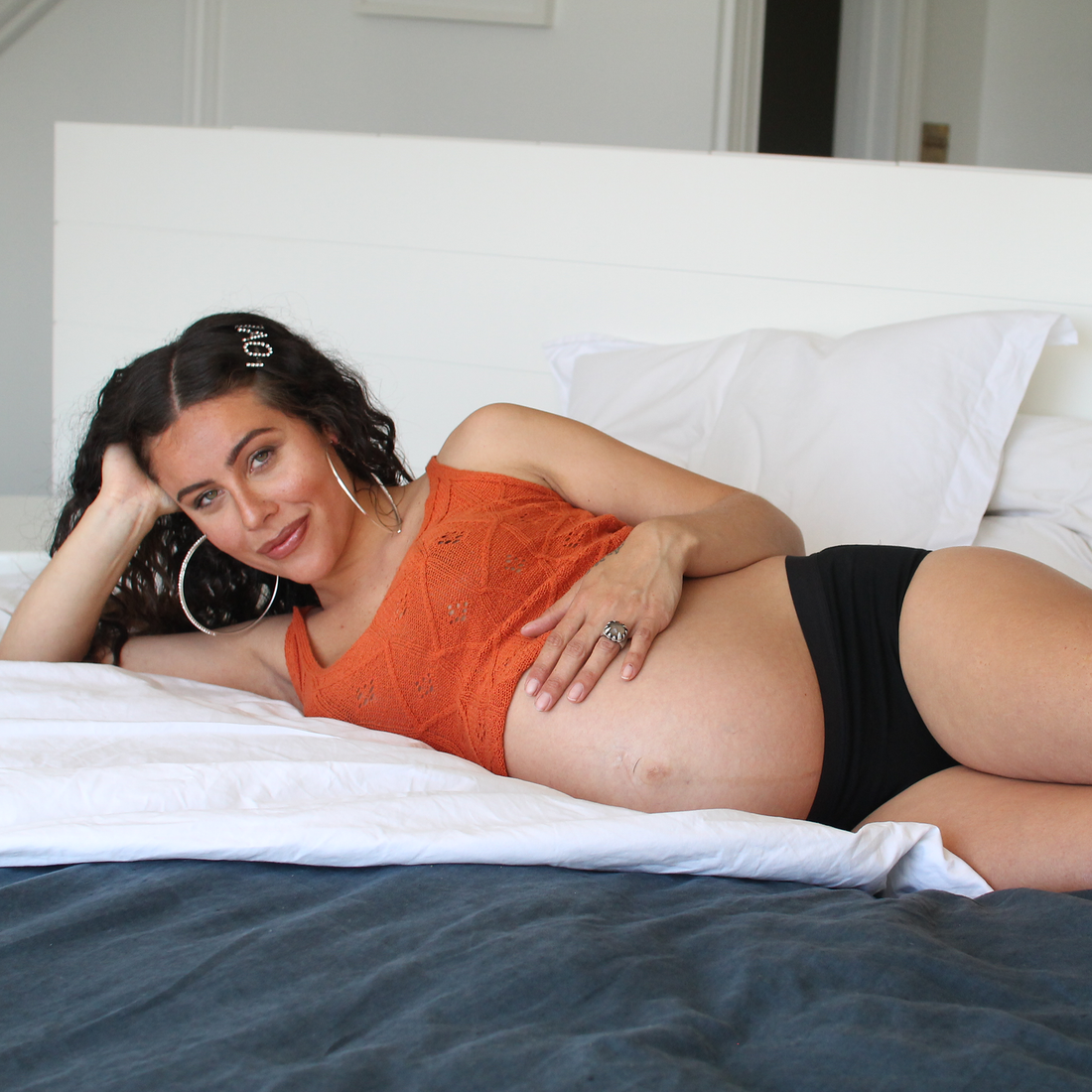
20 Ways going Waste Free in 2020 will help change the world
There has never been a time when action for the planet has been more precious, or more urgent. At AWWA our goals are broad ranging; from empowering girls and de-stigmatising periods, to enabling social and gender equality through affordable period care, sharing cultural wisdom and traditions... and normalising waste free periods to help mother earth!
Top 10 reasons to period waste free
1. Stop trashing our planet
Over 45 billion tampons or sanitary pads are thrown out every year - leaving 32,000 tonnes of plastic heavy waste around the globe. Kiwi women use 11,000 - 17,000 single use period products like pads and tampons in a lifetime. What a load of rubbish.
2. Single-use plastic is heating our planet
Plastics originate as fossil fuels and emit greenhouse gases from cradle to grave, accelerating climate change and contributing directly to a dangerously warming planet. By 2050, plastics will account for 20% of oil consumption and use 13% of the carbon budget – as much as 615 coal-fired power plants.*
Cutting plastic use now is critical to our survival. Eliminating single use 'throw away' plastic like pads (each contains as much plastic as a supermarket shopping bag) and tampons is a great reason to period waste free with AWWA.
3. Period product packaging means even more plastic
Packaging is one of the worst types of plastic waste. It is single use and super difficult to recycle. A typical pad has plastic inside, plastic strips on the adhesive, a plastic wrapper and comes in a plastic bag. Normally none of these plastic items are recycled. 14% of plastic packaging waste is incinerated - which creates CO2 emissions, noxious gases, heavy metals and toxic chemicals.
4. Pollution and climate change are social justice issues
Communities of color, working families and the poor are far more likely to have polluting infrastructure like power plants, industrial sites, highways and waste facilities in their communities, increasing health risks and lowering quality of life. Communities of color are especially vulnerable to the impacts of climate change because they are more likely to live in areas at higher risk of wildfires and flooding - or rising sea levels, like Kiribati.
Contributing to a waste free world means we will make and process less rubbish - and slow our impact on the environment and climate.
5. Single use period products are toxic to us too
Pads and tampons can contain dioxins from bleach (carcinogens, hormone disruptors, linked to endometriosis and can affect us even at very low levels), and synthetic fragrances (neuro-toxins and hormone disruptors) which come in contact with some of our most sensitive and absorbent tissue.
AWWA means less toxins for your body, as well as for the world.
6. Waste less cash
Single use period products mean a lifetime spend of approximately $16,000 for each Kiwi woman! Ditch the monthly expense and waste less money on period care with washable, reusable AWWA period underwear.
7. Waste less time
No dashing to the store for more tampons and pads. Everything you need for your period is right there in your underwear drawer ready for you to slip into. No need to dash to the loo during a meeting, no extra stops when you are travelling. No hassle at the beach or on the dance floor. AWWA has your back.
8. Comfort
Pads can feel like awful sodden lumps and tampons can leave you dry and itchy from micro tears, or at worst cause Toxic Shock Syndrome.
Wearing AWWA period underwear feels like your normal underwear. Soft and snuggly fabric sits against your skin while the slim absorbent layer wicks away your flow leaving you feeling fresh and dry.
9. Reliability
No leaks, no maybes, no what ifs. AWWA period undies absorb 2 regular pads or tampons worth of your flow, and they hold it securely in the soft absorbent fibres of the middle layer, with the back up of the leak proof layer to give you total peace of mind.
10. Lift a sister up
You can donate AWWA period underwear to women in need. Don't waste extra cash when you can put it to great purpose helping other Kiwi women and girls - ensuring they have period care when funds are tight and stress levels are high.
Want to do more? Here are 10 actions you can take while wearing AWWA
1. It's a climate emergency - Australia is burning
Donate if you can. Red Cross Australia, Wires wildlife rescue and the NSW Fire Service are good organisations to support. You can also encourage Australian friends and family to vote fossil-fueled politicians out and secure Australia a clean energy future.
2. Support women escaping unsafe situations in NZ
Women's Refuge provides a safe place for countless women and their children every year. Their latest campaign is 'Gift a Safe Night'. For $20 you can shout a safe night for a woman in New Zealand escaping domestic violence.
3. De-Plastic your lifestyle
You know the drill! Take your resuable bags to the shops, carry a keepcup, say no to straws, swap to cotton dishcloths and cleaners in glass packaging. Buy clothes in natural fibres from made in NZ labels or thrift shops so you don't contribute to sweatshop labour or plastic fibres washing into our oceans. Don't buy fast food in plastic packaging. Get a bamboo toothbrush. Use reusable food containers.
4. Be an activist
Write to your Politicians. March. Sign petitions. Fundraise. Volunteer. Encourage and support others doing amazing things. Talk with friends and family about the issues you are passionate about. Mobilise. Vote.
5. Choose where your dollar goes
Boycott brands that test on animals. Support indigenous led businesses. Shop NZ brands. Avoid waste-heavy international chain stores with dubious manufacturing processes. Shop local produce and support Kiwi growers. Buy organic if you can and take profit out of pesticides.
Profit shapes the decisions big brands make and the more people who shop for good, the more good companies make good decisions.
6. Spend time with your children
In today's world it's a radical act to create time to be with your tamariki. Play with them, love them, cuddle them. They are our taonga!
Speak gently with them about the issues we face, ask about their dreams and their fears. Enable their ideas and empower them to do what they can, it's important that they don't feel helpless and overwhelmed. And hey - let's not hear any more of "our children will be the ones to save the world"... the time for action is now - you don't get off the hook that easy!
7. Commit random acts of kindness & senseless acts of beauty
Take a meal to a tired friend. Visit someone lonely. Give a gift that means something special. Grow flowers and organic vegetables. Smile at strangers in the supermarket. Pick up the phone and call. Dance. Our humanity makes us beautiful.
8. Use less, love more
Reduce reuse recycle repair regift rethink ... Minimalism can be much more than a fashionable trend! Thinking about if you need something before you buy is much better than throwing it out later! Is it useful? Is it beautiful? If it's not, don't buy it - and if you already did, thrift or regift it!
Having fewer possessions that we really love or find really useful is a way to help the planet, our wallet and our sanity!
9. Practise self-love
In a society that profits from your self doubt, liking yourself is an act of rebellion!
You are perfect the way you are. No need to buy the latest concealer or do the latest diet. Take care of yourself and prioritise your wellbeing inside and out and your inner beauty will shine through. Not to mention you'll save lots of money and consume less wasteful products! Win win win!
10. Spend time in nature
Immerse yourself in the glory, beauty and emptiness of nature. we live in one of the most beautiful countries in possibly the universe's most welcoming planet. The more we live IN the world the harder we will fight for this inimitably miraculous speck of green and blue, as she spins through space with all we have ever held dear aboard.
Thank you for wanting to make the world a better place! If you want to add to our list please pop your ideas below!
* May 2019 report Plastic & Climate: The Hidden Costs of a Plastic Planet.

